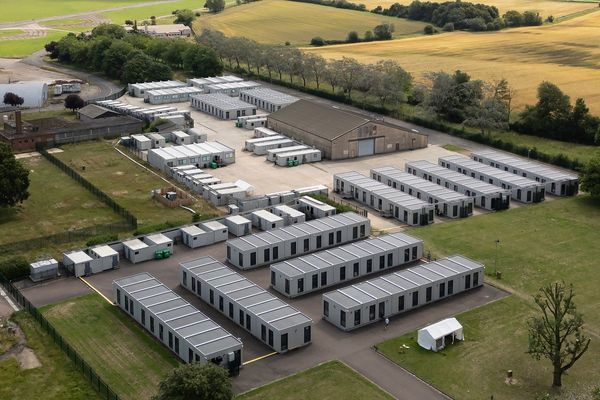
Asylum seekers will be housed in disused care homes and student digs under a Home Office plan to find 800 new accommodation sites and cut a bill that has risen to £5.5m a day.
Home Office sources have confirmed to the Guardian that the fundamental changes to asylum accommodation are under way in a bid to save millions spent every day on hotel accommodation.
About 35,000 asylum seekers are accommodated in hotels – a reduction from a high last year of more than 50,000 people. In 2023–24, the Home Office spent approximately £4.7bn on asylum support, of which about £3.1bn was spent on hotels.
The previous government hoped mass accommodation sites such as former military bases and the Bibby Stockholm barge moored in Portland, Dorset, would save taxpayers money and remove the optics of asylum seekers leading a life of luxury in hotels.
But at a meeting of the cross-party public accounts committee (PAC) on Monday, Home Office bosses admitted that mass accommodation sites on former military bases have not worked as well as the government had hoped.
Reports by the financial watchdog National Audit Office (NAO) found that sites such as the Bibby Stockholm barge, which has now been decanted, do not represent good value for money. The Home Office is still using hundreds of hotels to accommodate asylum seekers, which can cost about £150 a night.
The new plan is to roll out 800 new accommodation sites that are neither former military bases nor hotels and include care homes and vacant student accommodation.
According to freedom of information data obtained by Liberal Democrats last year, 94 care homes across 46 different local authorities in England are lying empty, some awaiting repairs or refurbishment.
The Home Office is advertising a £76,000-a-year top job with the title of New Sites Operational Post to manage the hundreds of new accommodation sites it hopes to roll out. The post will initially cover the existing sites of Napier barracks in Folkestone and Wethersfield in Essex but the job spec says the remit “is likely to extend to other sites in the near future”.
According to the job description, the new postholder will spend most of their time working on the large sites and “will work collaboratively with a range of stakeholders to transition to new large sites and alternative accommodation”. It adds that there will be “scope to increase as more sites become operational”.
When numbers of asylum seekers were smaller and their claims were processed more quickly, most lived in shared housing. But the pandemic and an increase in numbers led first to thousands of asylum seekers being accommodated in hotels and then the introduction of mass accommodation sites such as the Bibby Stockholm and Wethersfield, a former military base in a remote part of Essex referred to as a “stalag” by local residents.
NAO has condemned the purchase of another planned mass accommodation site – the asbestos-riddled former prison site Northeye, in Bexhill-on-Sea which the Home Office bought for £15.4m just a year after an investment company acquired the site for less than half that sum. No asylum seekers were ever moved in there.
The site will either be sold off or offloaded to another government department if any want the contaminated and dilapidated site.
At the PAC, Home Office permanent secretary Sir Matthew Rycroft admitted that “one thousand lessons had been learned in totality” from failures of mass accommodation sites such as Northeye.
Lou Calvey, director of the charity Asylum Matters, said: “News that government intends to open asylum accommodation in disused care homes and student blocks is deeply concerning. People should be accommodated in our communities with a clear, developed, support offer. Government need to be working with communities, investing in them, to ensure places of welcome. We would urge government to carefully consider its approach to accommodated hugely traumatised people who’ve been waiting on their asylum claims for years.”
A Home Office spokesperson said: “We have inherited enormous pressures in the asylum system and remain absolutely committed to ending the use of hotels to ensure value for money. We have identified a range of sites that we are narrowing down to a handful of suitable properties that will enable us to exit hotels sooner.”
• This article was amended on 11 December 2024 to add a comment from the Home Office that was received after publication. Also, the current daily hotel bill for temporary asylum-seeker housing is £5.5m, not £8m as stated in a previous version due to an editing error.










